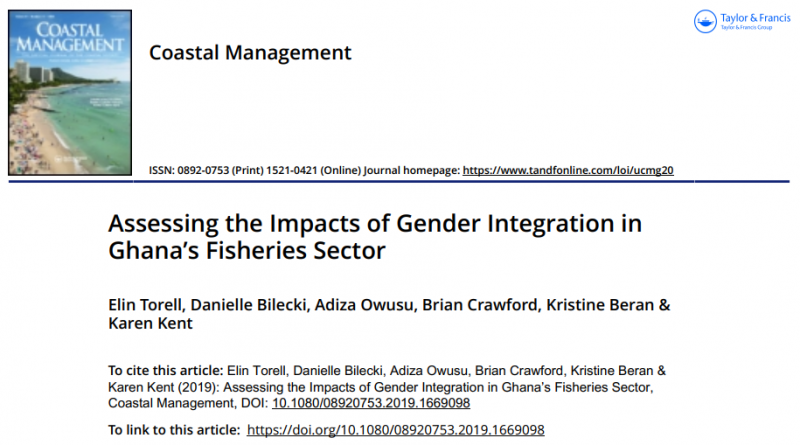[/private]
[private role=”visitor-only”]Please login/Register to access the reports[/private]
ABSTRACT
This article presents the results of an impact assessment of a component of a large scale USAID sustainable fisheries management project initiative aimed at integrating gender and strengthening the role of women in fisheries management in Ghana. The assessment is based on a literature review and qualitative field data collection. It assessed gender integration from three entry points: improving the Ghanaian policy environment for gender in fisheries, empowering women post-harvest processors, and engaging women gleaners in fisheries co-management. The assessment found that an important milestone was the adoption and implementation of the Ghanaian Fisheries Sector’s National Gender Mainstreaming Strategy in 2016. Summarizing the impacts on local post-harvest processors and gleaners, the assessment found that female post-harvest processors have increased capacity, confidence, and engagement in fisheries management. Gender mainstreaming efforts have succeeded in challenging cultural norms about women’s role in fisheries. Women have been exposed to sustainable fisheries management and are better equipped with the knowledge and leadership skills to advocate for good fisheries practices, which they actively demonstrate.

